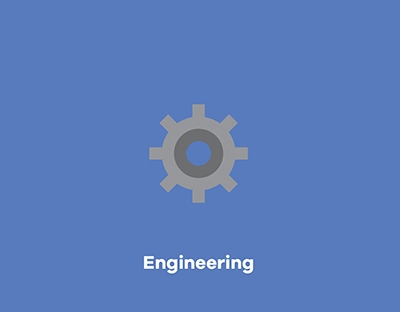Key Info
Bachelor/Master of Engineering in Civil Engineering
Entry route(s):
This course will be particularly attractive to you if you are interested in the application of scientific and technical knowledge to the solution of real world problems.
Why Study Civil Engineering at UL?
The Civil Engineering programme at UL is fully accredited by Engineers Ireland and uses a student-centered approach to teaching, using techniques such as problem based learning and active learning. In year one (common entry programme), you will develop your ability to work as part of a team, to plan and present, to undertake research and to apply your knowledge.
Entry route to Civil Engineering at UL is via LM116 Engineering Common Entry.
Civil engineering is a broad field of engineering dealing with the design, planning, construction and maintenance of fixed structures or public works as they are related to earth, water, or civilization and their processes. Most civil engineering today deals with structures, roads, bridges, railways, water supply, transportation and traffic, waste water, protection of the environment, flood control and power plants.
Three short videos describing the programme are available at www.ul.ie/civileng
Learn more about our courses and upcoming events
What you will study
Civil Engineering at UL now offers an integrated Bachelor/Master of Engineering programme. The entry route to both is through LM116 but in year 3 students have the choice to decide between the Bachelor of Engineering (B.E.) or Masters of Engineering (M.E.) programmes. The B.E. programme is 4 years in duration, while the M.E. programme adds an additional year making it a total of 5 years in duration. Both programmes include an eight-month period of Cooperative Education spent in an appropriate industrial environment.
Civil engineering at UL is built around a ‘learning-by-doing’ process and focuses on three areas:
- Water and the Environment
- Energy in Civil Engineering
- Buildings & Infrastructure
When you join the civil engineering team at UL, you learn to be an engineer from day one. Working in small teams, you will solve interesting problems. The challenges presented are open-ended and increase in complexity as you progress through the years. Your ingenuity and creativity are required to explore many viable solutions. Drawing from what you have learned and with the shared knowledge of your team, you will design, analyse and (in many cases) test your creations. Lectures are provided along the way to fill in gaps in your knowledge.
The programme is fully ECTS (European Credit Transfer System) compliant, allowing student mobility across Europe. In addition, close ties with a number of universities in the United States provide students with exciting opportunities to spend a semester studying abroad.
Year 1
In year one you will be part of the LM116 Bachelor of Engineering Common Entry programme where you will develop broad engineering skills while receiving insights into the different engineering disciplines. In the spring semester students interested in Civil Engineering will undertake a ‘learning by doing’ project where you will be challenged to design and build civil engineering structure which has to do a specific task. Starting with a blank whiteboard you will work in teams to develop your ideas which you will then build and test at the end of the semester.
| Semester 1 | Semester 2 | ||
| CH 4001 | Chemistry for Engineers | MA 4002 | Engineering Maths 2 |
| EE 4001 | Electrical Engineering 1 | ME 4111 | Engineering Mechanics 1 |
| MA 4001 | Engineering Maths 1 | ME 4412 | Fluid Mechanics |
| ME 4001 | Introduction to Engineering | MT 4002 | Materials 1 |
| ME 4121 | Engineering Science | Elective | |
| EE 4011 | Engineering Computing | ME 4032 | Structural Engineering Design 1 |
| ME 4042 | Introduction to Design for Manufacture |
Year 2
In year two you will work in small teams to solve a variety of interesting problems. The challenges presented are open-ended and increase in complexity as you progress through the years. Your ingenuity and creativity are required to explore many viable solutions. Drawing from what you have learned and with the shared knowledge of your team, you will design, analyse and (in many cases) test your creations. Lectures are provided along the way to fill in gaps in your knowledge.
| Semester 3 | Semester 4 | ||
| CE 4011 | Building Materials, Assembly & Structure | CE 4013 | Structural Analysis 1 |
| CE 4014 | Hydrology & Water Engineering | CE 4024 | Structural Steel & Timber Design |
| CE 4023 | Design Studio | CE 4044 | Fluids and Energy |
| CE 4043 | Structural Engineering Design 2 | MA 4004 | Engineering Maths 4 |
| MA 4003 | Engineering Maths 3 | WT 4014 | Introduction to Geology & Soil Mechanics |
Year 3
In year three you will get a real experience of being an engineer when you take the draft plans of a building and undertake the role of Civil Engineer in this ‘Integrated Design Project’. This project requires the integration of many aspects of civil engineering disciplines including interaction with the design architect, land surveying, structural analysis, structural design, foundation design, health safety issues and forms the core of the first semester in year three. The project is followed by an eight-month Co-op placement with an engineering contractor/ consultant in Ireland or abroad.
| Semester 5 | Semester 6 | Summer | |
| CE 4005 | Structural Theory | Cooperative Education | Cooperative Education |
| CE 4015 | Soil Mechanics | ||
| CE 4045 | Professional Practice 1 | ||
| CE 4025 | Transport Planning & Design | ||
| CE 4055 | Reinforced Concrete Design 1 |
During Year 3 students have the choice to decide between the Bachelor of Engineering (B.E.) or Masters of Engineering (M.E.) programmes – see below for further details.
Year 4/5
In year four you will learn about energy-efficient buildings, wind energy and how to design water treatment systems. A unique feature of the programme is learning from the engineering mistakes of the past; in doing so, you will investigate actual engineering failures in collaboration with law students. As a student engineer, you will act as an expert witness in a moot court (simulation) and have your expert opinions tested through examination and cross-examination by the student lawyers.
Your final year project allows you to specialise in the area of civil engineering that intrigues you most. Clear and effective communication is an essential skill for the civil engineer and is carefully fostered in every project throughout the programme. You will develop verbal, written and poster presentation skills in addition to creating video documentaries, participating in a moot court and ethical debates, and you will also act as a technical guide to creative arts students on special projects.
| Year 4 | Semester 7 | Semester 8 | Summer | |
| CE 4057 | Final Year Project | CE 4078 | Final Year Project | |
| CE 4007 | Water Management Systems | CE 4028 | Energy Efficient Buildings: Modelling & Design | |
| ER 4507 | Waste Management 1 | CE 4048 | Geotechnical Engineering Design | |
| WT 4507 | Forensic Engineering & Ethics | |||
| Elective - Choose 1 | Elective - Choose 1 | |||
| CE 6001 | Wind, Ocean & Hydro Energy | CE 4058 | Project Planning & Control for the Built Environment | |
| ER 4417 | Environmental Impact Assessment | CE 4088 | Reinforced Concrete Design II | |
| ME 4616 | Finite Element Analysis | ER 4508 | Pollution Control 2: Waste Management | |
| WT 4707 | Construction Technology & Management 4 | EP 4008 | Business Consulting |
| Semester 7 | Semester 8 | ||
| CE 4067 | Scheme Design | CE 4088 | Reinforced Concrete Design II |
| CE 4007 | Water Management Systems | CE 4028 | Energy Efficient Buildings: Modelling & Design |
| ER 4507 | Waste Management 1 | CE 4048 | Geotechnical Engineering Design |
| WT 4507 | Forensic Engineering & Ethics | ||
| Elective - Choose 1 | Elective - Choose 1 | ||
| CE 6001 | Wind, Ocean & Hydro Energy | CE 4058 | Project Planning & Control for the Built Environment |
| ER 4417 | Environmental Impact Assessment | EP 4008 | Business Consulting |
| ME 4616 | Finite Element Analysis | ER 4508 | Pollution Control 2: Waste Management |
| WT 4707 | Construction Technology & Management 4 |
| Semester 9 | Semester 10 | ||
| EN 6151 | Research Project 1 | EN 6202 | Research Project 2 |
| ME 6051 | Advanced Technical Communication for Engineers | MP 6052 | International Business Consulting |
| Elective - Choose 1 | Elective - Choose 2 | ||
| MP 6052 | International Business Consulting | EN 6442 | Advanced Geotechnical Engineering |
| MP 6031 | Managing International Ventures | Engineering a circular economy | |
| Elective - Choose 2 | EN 6472 | Advanced Structures | |
| CE 6001 | Wind, Ocean & Hydro Energy | ME 6052 | Fracture Mechanics |
| En 6431 | Structural Dynamics & Earthquake Engineering | ME 6062 | Advanced Computational Fluid Dynamics |
| Engineering for Net Zero Carbon | ME 6071 | Non-linear Finite Element Analysis | |
| ME 4616 | Finite Element Analysis | ME 6192 | Plasticity of conventional and 3D printed metals |
| ME 4037 | Advanced Mechanics of Solids | ||
| ME 4438 | Computational Fluid Dynamics |
Entry requirements
| Minimum grades |
Applicants are required to hold at the time of enrolment the established Leaving Certificate (or an approved equivalent) with a minimum of six subjects which must include: Two H5 (Higher Level) grades and Four O6 (Ordinary Level) grades or four H7 (Higher Level) grades. Subjects must include Mathematics, Irish or another language, and English. |
|---|---|
| Subject requirements |
In addition, applicants must hold a minimum grade H4 in Mathematics and grade O6/H7 in one of the following: Physics, Chemistry, Physics with Chemistry, Engineering, Technology, Design & Communication Graphics/ Technical Drawing, Biology, Agricultural Science, Applied Maths, Construction Studies. |
| Additional considerations |
A Special Mathematics Examination will be offered at UL following the Leaving Certificate results for those students who did not achieve the Mathematics requirement. We welcome applications from mature students. Mature applicants must apply through the Central Applications Office (CAO) by 1 February. |
| Non-EU Entry Requirements |
|
How to apply
| Where are you applying from? | How to Apply |
|---|---|
| Ireland | Irish students must apply to UL via the CAO. More information can be found here. |
| The UK | Students who have completed their A-Levels can apply to UL via the CAO. More information can be found on the Academic Registry website. |
| The EU | EU Students can apply to UL via the CAO. More information can be found on the Academic Registry website. |
| Non-EU country | If you are outside of the EU, you can apply for this degree here. |
Fees and funding
Student course fees are broken into three components - Student contribution, Student Levy and Tuition Fees.
A number of illustrative examples of fees for this course based on the current fee levels have been set out in the tables below.
An explanation of the components, how to determine status and the criteria involved is provided below the examples as is a list of possible scholarships and funding available.
EU Students with Free fees status in receipt of a SUSI grant
| HEA pays | Tuition Fees | €4,262 |
| SUSI pays | Student contribution | €3,000 |
| Student pays | Student Levy | €100 |
| €7,362 |
EU Students with Free fees status not in receipt of a grant
| HEA pays | Tuition Fees | €4,262 |
| Student pays | Student contribution | €3,000 |
| Student pays | Student Levy | €100 |
| €7,362 |
Students with EU fee status not in receipt of a grant
| Student pays | Tuition Fees | €4,262 |
| Student pays | Student contribution | €3,000 |
| Student pays | Student Levy | €100 |
| €7,362 |
Non-EU Students
| Student pays | Tuition Fees | €20,900 |
| Student pays | Student Levy | €100 |
| €21,000 |
Student course fees are comprised of the following components:
Student Contribution
Annual charge set by the government for all full-time third level students. All students are liable unless they have been approved for a grant by Student Universal Support Ireland (SUSI). Please refer to https://www.studentfinance.ie to determine your eligibility for a grant and for instructions on how to apply. The current student contribution is set at €3000.
Student Levy
All students are liable to pay the Student Levy of €100. Please note the Student Levy is not covered by the SUSI Grant.
Tuition Fees
These are based on Residency, Citizenship, Course requirements.
Review the three groups of criteria to determine your fee status as follows
-
Residency
- You must have been living in an EU/EEA member state or Switzerland for at least 3 of the 5 years before starting your course
-
Citizenship
- You must be a citizen of an EU/EEA member state or Switzerland or have official refugee status
-
Course Requirements
(all must be met)
- You must be a first time full-time undergraduate (Exceptions are provided for students who hold a Level 6 or Level 7 qualification and are progressing to a Level 8 course in the same general area of study).
- You must be undertaking a full-time undergraduate course of at least 2 year’s duration
- You cannot be undertaking a repeat year of study at the same level unless evidence of exceptional circumstances eg serious illness is provided (in which case this condition may be waived)
Depending on how you meet these criteria your status will be one of the following -
- Free Fee Status: You satisfy all three categories (1, 2 and 3) and therefore are eligible for the Higher Education Authority’s Free Fees scheme.
- EU Fee Status: You satisfy both the citizenship and residency criteria but fail to satisfy the course requirements and are liable to EU fees.
- Non EU Fee Status: You do not meet either the citizenship or residency criteria and are therefore liable to Non EU fees.
More information about fees can be found on the Finance website
These scholarships are available for this course
| Title | Award | Scholarships Available |
|---|---|---|
| ARUP Integrated Design Project Awards in Civil Engineering | €1,500 | 4 |
| ARUP Scholarship for Women in Civil Engineering | €5,000 | 1 |
| Innovative Student Engineer of the Year Awards | €1,500 and a trophy | 1 |
| Johnson and Johnson WiSTEM2D Programme | ||
| Women in Engineering Bursary Awards | €500 | 8 |
These scholarships are available for all courses
| Title | Award | Scholarships Available |
|---|---|---|
| All Ireland Scholarships - sponsored by J.P. McManus | €6,750 | 125 |
| Cooperative Education Award | 1 medal per faculty | |
| Elaine Fagan Scholarship | €5,000 | 5 |
| Financial Aid Fund | ||
| Higher Education Grants & VEC Grants | ||
| Paddy Dooley Rowing Scholarship | €2,500 | |
| Plassey Campus Centre Scholarship Programme | ||
| Provincial GAA Bursaries Scheme | €750 | |
| Stuart Mangan Scholarship | ||
| The Michael Hillery and Jacinta O’Brien Athletics Scholarship | Various benefits equating to over €7,000 in value | |
| UL Sports Scholarships | Varies depending on level of Scholarship | Multiple |
Your future career
Employability skills from this degree
- Solving problems in an analytical, logical way
- Working in teams
- Conducting research
- Making decisions
- Being flexible in dealing with unexpected situations
- Numeracy, design and drawing
- IT skills (e.g. CAD)
- Project management
- Self-reflection and continued professional development
- Written and verbal communication
Further Study Options
- MSc in Financial Services
- MSc in Project Management
- Structured PhD in Civil Engineering and Materials Science
- Structured PhD in Civil Engineering
Job titles for graduates with this degree
Graduates progressing directly into employment take up a wide variety of roles. The following provides a sample of initial roles listed on the Graduate Outcomes Survey by graduates approximately one year after graduation:
- Assistant Engineer
- Builder
- Civil Engineer
- Design Engineer
- Engineer
- Estimator
- Facade Designer
- Graduate Engineer
- Graduate Geotechnical Engineer
- Junior Project Manager
- Project Coordinator
- Site Engineer
- Site Manager/Project Manager
- Technician
Student profiles

Robert O'Callaghan
After completing my undergraduate degree in Civil Engineering at UL, I undertook a Masters in Structural Engineering at Cornell University, Ithaca, New York. Along with lectures, I have been working in a team of 20 students on the structural design of a 250m tall building in Seoul, South Korea. This project was designed to be completed in the same manner as one would progress any such project in a design engineer’s office.
For the first semester I was chosen as overall team leader, and have no doubt that the skills and confidence I learned through UL's Problem Based Learning approach aided me greatly. Trying to coordinate and organise our team of 20 students with diverse backgrounds was one of our greatest challenges. My course in UL gave me great experience of working within a team in a professional and self-organised manner. Such skills proved invaluable to me during this project, meaning that I was confident to seek out and utilise new information on my own. I feel that my innovative education in Civil Engineering at U.L. prepared me for my graduate education like no other.
James Long
As a child I was fascinated by buildings and bridges and I loved Engineering, Maths and Physics in school so Civil Engineering seemed like a perfect choice for me.
For anyone studying Engineering UL is a great place to be and the campus is home to some amazing works of engineering, including the award winning “Living Bridge” – the longest pedestrian bridge in Ireland.
The course itself is fantastic; like anything worth doing its hard work sometimes, but we’re constantly starting new and different projects. For instance we recently completed a design and build of a 6m tall timber siege tower. We used the siege platforms to re-inact The Siege of Limerick at King John’s castle. What better way of learning about timber design can there be?


